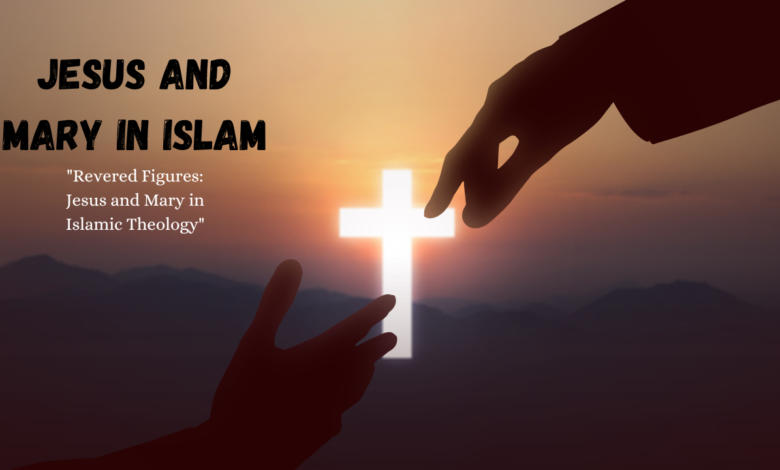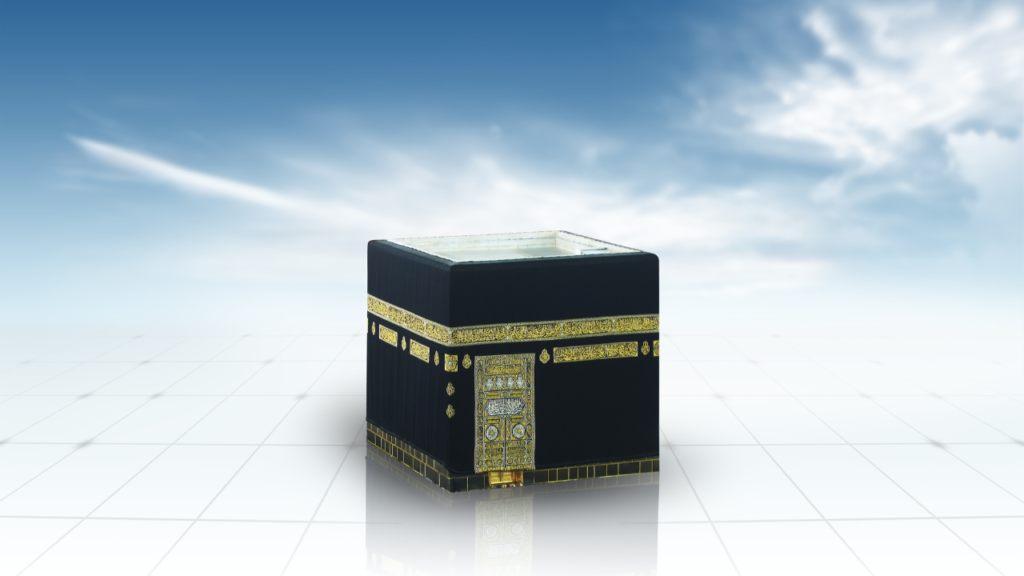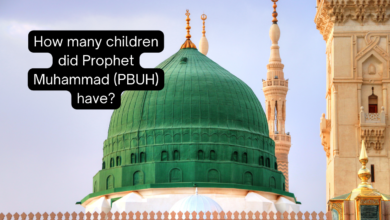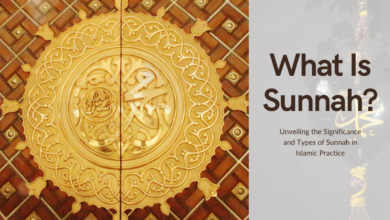
Jesus and Mary in Islam
Jesus, known as “Isa” in Arabic, is considered a prophet in Islam. He is believed to be the son of Mary (Maryam in Arabic) and a prominent figure in Islamic tradition.

Introduction
The figures of Jesus (Isa in Arabic) and Mary (Maryam in Arabic) hold significant importance in Islam. While often associated primarily with Christianity, both Jesus and Mary play unique roles in Islamic theology and history. This article aims to shed light on the Islamic perspective on Jesus and Mary, highlighting their revered status and the key aspects of their narratives within the faith.
Mary in Islam
- Maryam, a Model of Virtue: In Islam, Maryam is regarded as one of the most virtuous and pious women to have ever lived. She is often held up as an exemplar of faith, patience, and devotion to God. The Quran describes her as “the chosen one above all women of the worlds” (Quran 3:42), emphasizing her spiritual significance.
- The Immaculate Conception: Islamic tradition teaches that Maryam was born to her mother, Hannah (known as Anne in Christian tradition), through a miraculous birth. Her mother had dedicated her to the service of God even before her birth. Thus, Maryam’s conception and birth are considered miraculous, although not in the same way as the Christian doctrine of the Immaculate Conception.
- The Virgin Birth: Islam also affirms the virgin birth of Jesus. Maryam conceived Jesus without any human intervention, as is described in the Quran (3:47). This event underscores the divine nature of Jesus and is a central tenet of Islamic belief.
Jesus in Islam
- Isa, the Prophet: In Islam, Jesus is recognized as one of the mightiest prophets and messengers of God. He is referred to as Isa ibn Maryam (Jesus, the son of Mary), and his prophethood is considered a continuation of the line of prophethood that began with Adam and included figures like Noah, Abraham, Moses, and others.
- Miracles of Jesus: The Quran narrates several miracles performed by Jesus during his ministry, such as healing the sick, raising the dead, and creating birds from clay (Quran 3:49). These miracles are attributed to the divine power granted to him by God to confirm his prophethood.
- The Crucifixion Controversy: One of the significant differences between Islamic and Christian narratives is the crucifixion of Jesus. In Islam, it is widely believed that Jesus was not crucified. Instead, a likeness of him was crucified, while Jesus was raised to the heavens by God. This belief is based on Quranic verses (Quran 4:157-158) and is a crucial aspect of Islamic theology regarding Jesus.
Also Check
- Islam in the Middle of Christianity
- Is Islam monotheistic or polytheistic?
- Iman in Islam
- House of wisdom Islam
- Islam moon and star
Common Themes and Values
Despite these theological differences, there are common themes and values associated with Jesus and Mary in both Islam and Christianity:
- Monotheism: Both religions emphasize the absolute monotheism of God. Jesus and Mary, in their respective faiths, serve as exemplars of submission to the one true God.
- Virgin Birth: The belief in the virgin birth underscores the miraculous nature of Jesus’ arrival and the divine intervention in human affairs.
- Compassion and Mercy: The teachings and actions of Jesus and the character of Mary emphasize compassion, forgiveness, and mercy, which are universal values shared by both faiths.
- Respect for Women: The high regard for Maryam in Islam reflects the broader Islamic principle of honoring and respecting women, emphasizing their pivotal roles in society and faith.
Conclusion
In Islam, Jesus and Mary are revered figures who hold essential roles in the faith’s narratives. They are esteemed for their unwavering faith, piety, and devotion to God. The Islamic perspective on Jesus and Mary may differ in some aspects from the Christian viewpoint, but there are shared values and themes that bridge the two faiths. These figures continue to serve as sources of inspiration and spiritual guidance for Muslims worldwide, showcasing the diverse and rich tapestry of religious traditions that shape our world.

Frequently Asked Questions about Jesus and Mary in Islam
Who are Jesus and Mary in Islam?
Jesus, known as “Isa” in Arabic, is considered a prophet in Islam. He is believed to be the son of Mary (Maryam in Arabic) and a prominent figure in Islamic tradition.
How do Muslims view Jesus in Islam?
Muslims respect and revere Jesus as a prophet of God. They believe in his miraculous birth, his role as a messenger, and his teachings, although their views differ from those of Christianity.
What is the Islamic view of the birth of Jesus?
Muslims believe in the miraculous birth of Jesus to the Virgin Mary. It is described in the Quran as a sign of God’s power and mercy.
Is Jesus considered divine in Islam?
No, in Islam, Jesus is not considered divine or the Son of God. Muslims believe in the absolute oneness of God (Tawhid), and divinity is not ascribed to any human or creation.
What are some of the miracles attributed to Jesus in Islamic tradition?
Islamic tradition attributes various miracles to Jesus, including healing the sick, raising the dead, and creating birds from clay. These miracles are seen as manifestations of God’s power through Jesus.
Do Muslims believe that Jesus was crucified?
Islamic belief regarding the crucifixion of Jesus differs from that of Christianity. Muslims generally believe that Jesus was not crucified but was raised to the heavens by God, sparing him from crucifixion.
What are the teachings of Jesus in Islam?
Muslims believe that Jesus preached monotheism and moral guidance similar to other prophets. His teachings emphasized worshiping one God, righteousness, compassion, and kindness to others.
How does the Quran depict Mary, the mother of Jesus?
Mary (Maryam) holds a special place in Islam. She is portrayed as a pious and virtuous woman chosen by God to give birth to Jesus. She is often praised for her devotion and submission to God’s will.
Do Muslims celebrate Christmas?
Christmas is not a religious holiday in Islam, and Muslims do not celebrate it as Christians do. However, some Muslim-majority countries may have secular observances or cultural events during the holiday season.
Are there any specific Islamic holidays related to Jesus and Mary?
Islam does not have holidays dedicated exclusively to Jesus or Mary. Islamic holidays primarily revolve around events in the life of the Prophet Muhammad, such as Eid al-Fitr and Eid al-Adha.






